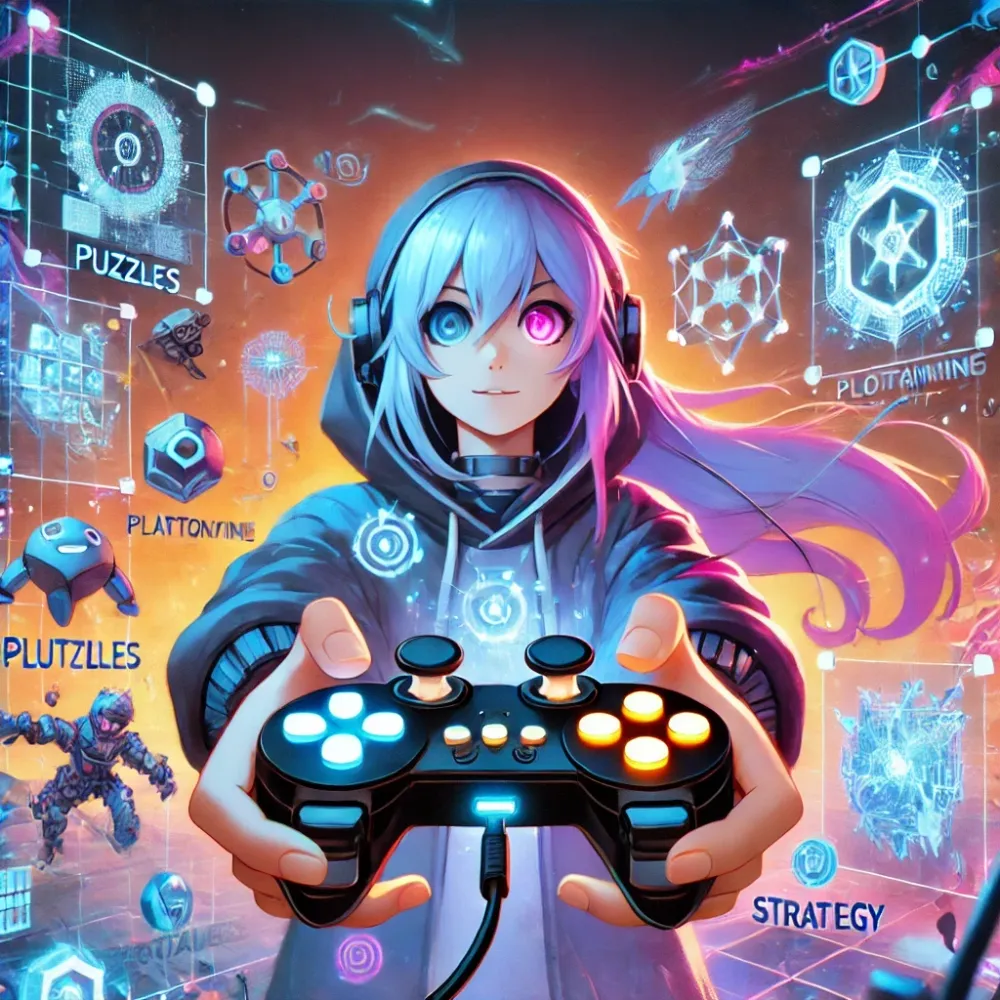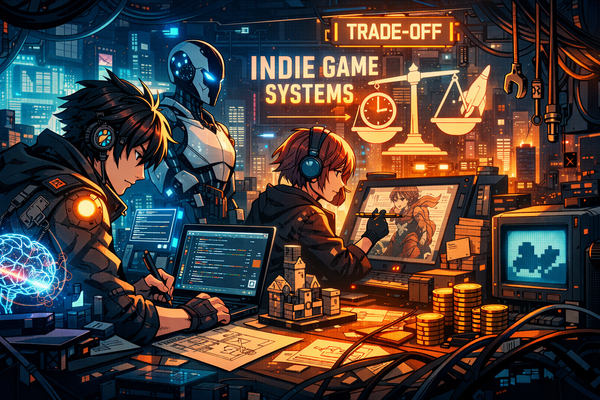The power of experimental mechanics: Why unconventional controls are the future of indie games
Indie developers are increasingly adopting experimental mechanics and unconventional control schemes, challenging traditional gameplay and creating unique player experiences. Moving beyond typical controls, these games capture players' interest through creative, innovative designs. Games like Octodad: Dadliest Catch and Untitled Goose Game demonstrate how unconventional control schemes can create memorable, engaging gameplay experiences (Gamasutra: https://www.gamasutra.com/).
1. The appeal of experimental mechanics
Experimental mechanics open up new ways for players to interact with games, encouraging creativity and discovery. In Baba Is You, players can alter game rules by rearranging words, allowing them to break conventional gameplay logic. The game challenges players to reimagine traditional puzzle-solving, fostering a deeply engaging experience (Polygon: https://www.polygon.com/2019/3/13/18264654/baba-is-you-puzzle-logic-zelda-indie-game).
This approach shows how indie developers can use simple mechanics in innovative ways, capturing the essence of indie experimentation and creating experiences that resonate with players seeking something new and interactive.
2. Unconventional controls: A gateway to innovation
Control schemes define player engagement, and many indie titles use unique controls to enhance immersion. Octodad: Dadliest Catch assigns separate controls for each limb, making movement both challenging and humorous (IGN: https://www.ign.com/articles/2014/01/28/octodad-dadliest-catch-review). This approach adds an extra layer of interaction that directly reflects the game’s themes of awkwardness and humor.
In Untitled Goose Game, intuitive controls allow players to step into the role of a mischievous goose, creating a sandbox of playful chaos. The game’s simple control scheme complements its charm and accessibility, making it enjoyable for players of all ages (The Verge: https://www.theverge.com/2019/9/23/20879851/untitled-goose-game-review-indie-nintendo-switch-mac-windows).
3. Balancing innovation and playability
Developing games with experimental mechanics comes with challenges. Striking the right balance between accessibility and complexity is essential to avoid player frustration. Celeste does this well, combining simple platforming controls with challenging level design to create gameplay that is difficult yet rewarding (Rock Paper Shotgun: https://www.rockpapershotgun.com/how-celeste-became-the-perfect-hard-platformer).
Games like Getting Over It with Bennett Foddy demonstrate that unconventional controls can also drive commercial success. The game’s intentionally difficult mechanics engage players through perseverance and skill mastery, attracting those who appreciate a unique and challenging experience (Kotaku: https://kotaku.com/getting-over-it-with-bennett-foddy-is-a-brilliantly-fur-1821849267).
4. The future of indie games and experimental mechanics
As the indie game industry grows, experimental mechanics and controls are likely to become more prevalent. These innovations set indie games apart from mainstream titles, providing players with distinctive experiences. Indie developers are particularly well-positioned to push creative boundaries, using unconventional controls and mechanics to redefine player engagement (Game Developer: https://www.gamedeveloper.com/).
By prioritizing originality, indie developers offer gameplay that stands out in the market, appealing to players seeking fresh, memorable interactions that challenge traditional expectations.
The power of experimental mechanics and unconventional controls lies in their potential to reshape player engagement. By challenging standard gameplay structures, indie developers are creating one-of-a-kind experiences that push the boundaries of gaming. As the industry evolves, these experimental approaches will play a crucial role in shaping the future of indie games, inspiring players and developers alike.




